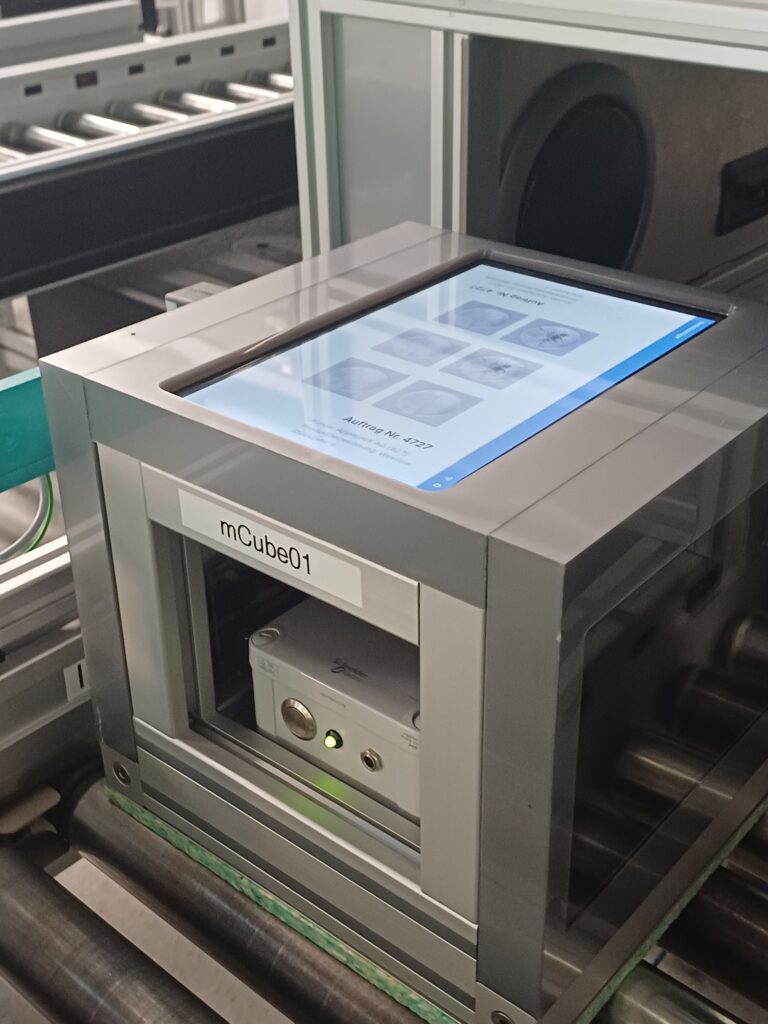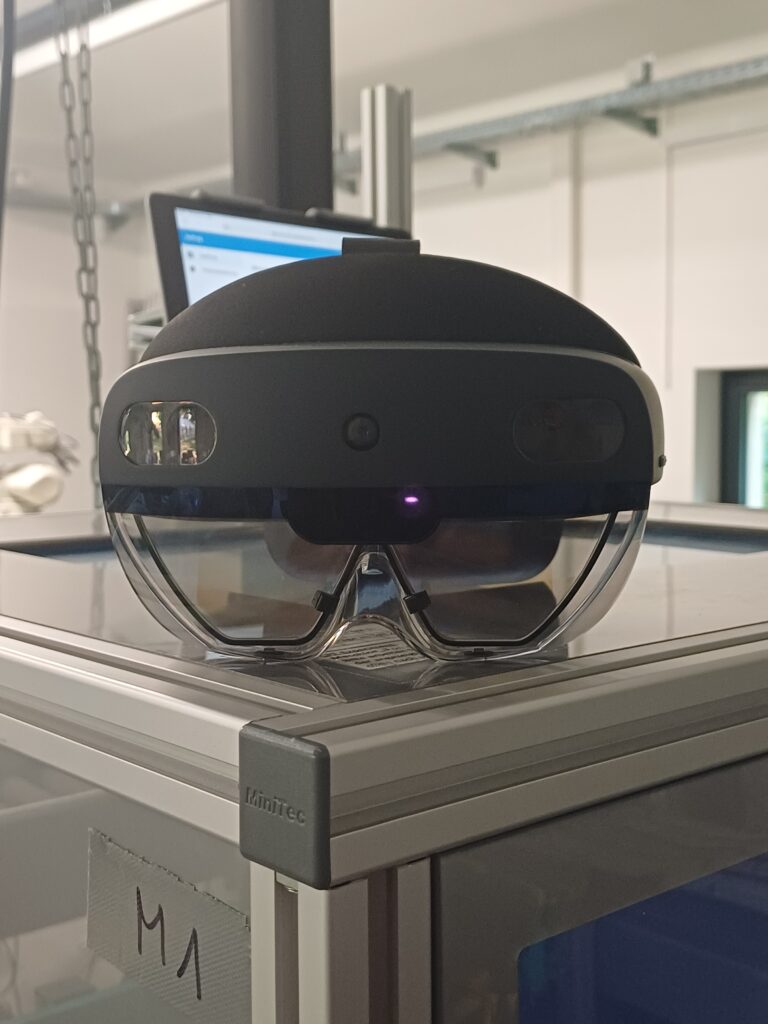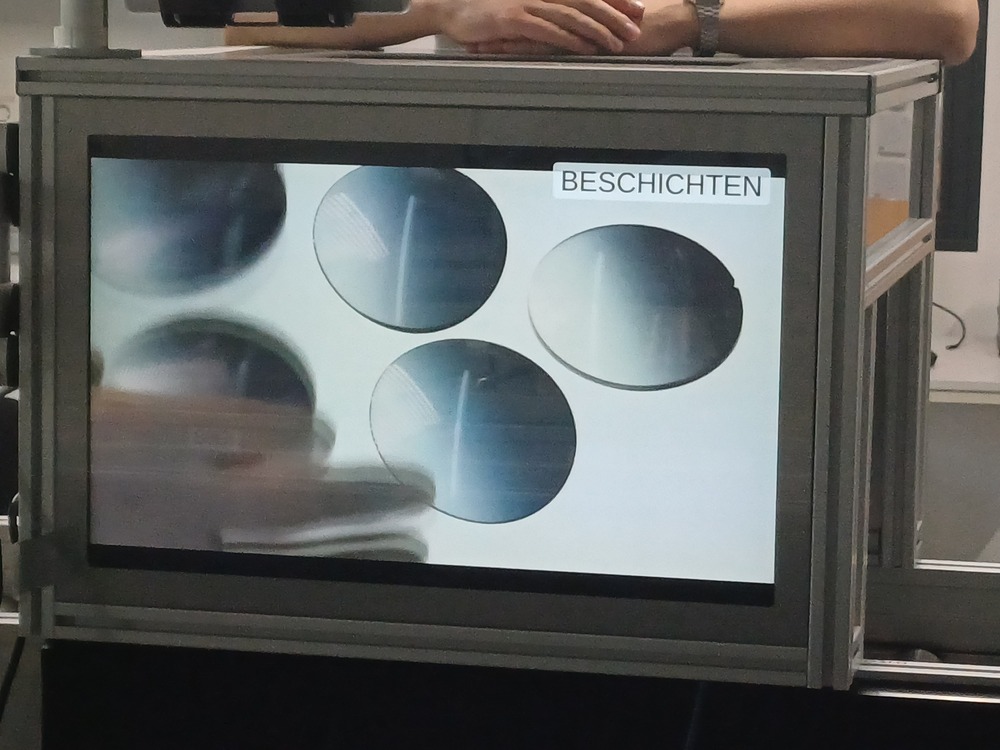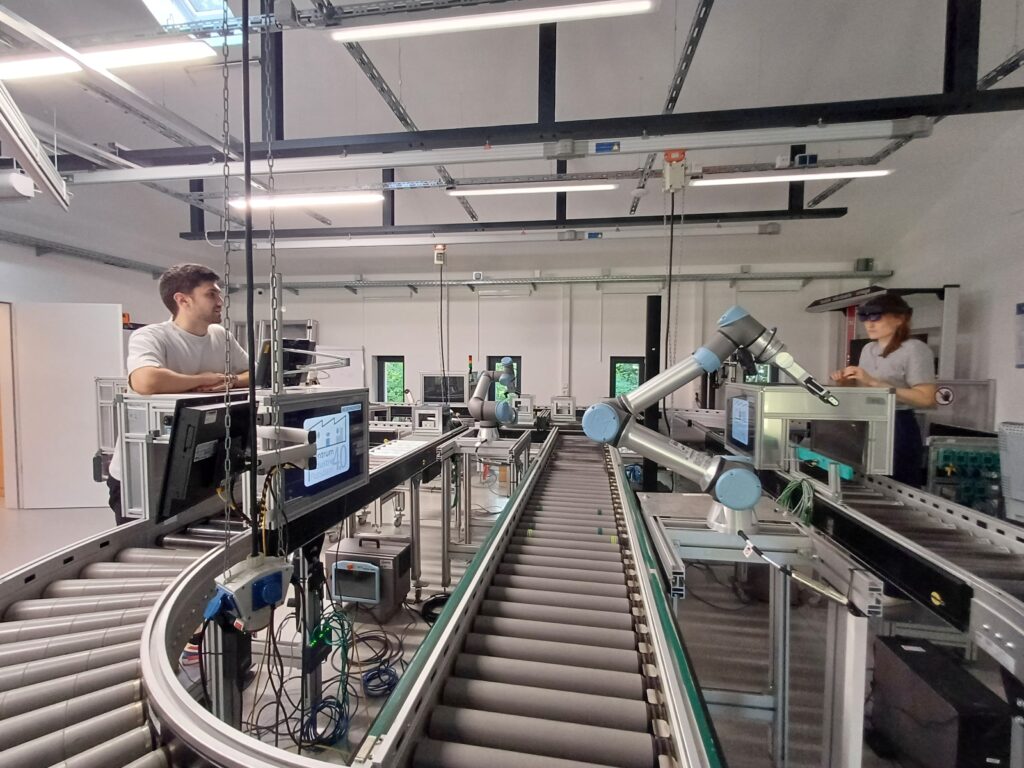The Weizenbaum Institute conducts research in a variety of ways. To provide an insight into the different research practices, the Methods Lab presents selected projects. For the second text in this series, Anna Hohwü-Christensen visited Das Zentrum Industrie 4.0 Potsdam to meet Jana Gonnerman from the research group Education for the Digital World.
During my visit to the Center for Industry 4.0, I had the opportunity to participate in the pretest of the HoloLens study and learn more about augmented reality-based learning. The goal of the study, which is a collaboration between the research groups of Gergana Vladova (Education for the Digital World) and Martin Krzywdzinski (Working with Artificial Intelligence), is twofold. In the first part, the research groups investigate the effectiveness of different Augmented Reality (AR) designs on learning and compare them to traditional paper-based methods by using eye-tracking. In the second part, they focus on participants’ decision making and disruption management, guided by suggestions from an AI-assisted system. These participants can operate in either a team-based or hierarchical setting.


In the first part of the experiment, participants work in a simulated factory environment where they are tasked with producing lenses. The team uses either AR instructions or traditional paper instructions, depending on the experimental condition. The AR head-mounted display guides the team through tasks such as adjusting machine settings, sorting defective lenses, and other simulated problems. The same principle is used in the other experiments, except in this case, participants rely on paper-based learning instead of AR glasses.

In the second part of the experiment, participants apply what they learned in the first part, but without using the AR glasses or the paper instructions. In addition, the errors they must solve are different from those in the previous part. When presented with a problem, participants are expected to solve it collaboratively through effective communication and with the help of AI.
To measure performance, the study uses traditional metrics such as time and error rates. Between each round, knowledge tests in the form of a questionnaire are administered to assess participants’ recall and comprehension. The hypothesis is that process-integrated learning via Augmented Reality can enhance the learning process.

The HoloLens study, which is currently in its analytical stage, is conducted by Prof. Dr. Norbert Gronau, Prof. Dr. Martin Krzywdzinski, Jana Gonnermann, Dr. Gergana Vladova, Dr. Philip Wotschack, Stephan Sailer, and Nicolas Leins.